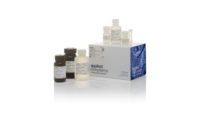The American Association of Veterinary Laboratory Diagnosticians (AAVLD) today announced the recipients of Innovation in Veterinary Diagnostic Medicine Grant Program in support of innovation in veterinary diagnostics sponsored by Thermo Fisher Scientific. Two recipients received $25,000 each in funding to pursue leading ideas that advance veterinary diagnostic medicine.
The Grant recipients are:
- Laura B. Goodman, Ph.D., Senior Research Associate, Cornell University College of Veterinary Medicine
- Christie E. Mayo, Ph.D., Assistant Professor, Colorado State University,
- Mark Stenglein, Assistant Professor, Colorado State University,
- Justin Lee, Research Scientist, Colorado State University
The goal of Dr. Goodman’s research is to develop a nanoscale PCR testing panel covering all major tick-borne disease pathogens in North America, which could be shared with other labs to improve assay harmonization
The goal of Colorado State University team’s research is to develop a novel molecular method based on next generation sequencing to systematically investigate bovine respiratory disease (BRD) and bovine abortion (BA) cases. The improved methodology will be designed to gain a significantly clearer picture of the polymicrobial nature of BRD and BA.
“It’s important for our industry to continue to strive forward with important research by innovative individuals in our field and to never stop searching for scientific breakthroughs,” said Dr. Pat Halbur, president of the AAVLD. “We hope the research generated by this grant will help diagnosticians keep their labs on the leading edge of technology and improve efficiency and profitability.”
“We congratulate our winners and are proud to support cutting-edge research and creative solutions that push the boundaries of animal health diagnostics and enable our customers to make the world healthier, cleaner and safer,” said Martin Guillet, global head and general manager of AgriBusiness at Thermo Fisher Scientific.
The grants were awarded at the AAVLD Annual Conference in San Diego in October. Proposals were evaluated based on innovativeness, potential for broad impact on veterinary diagnostic medicine, clarity of the proposal, quality of the science and likelihood that the research can be completed within a year.






